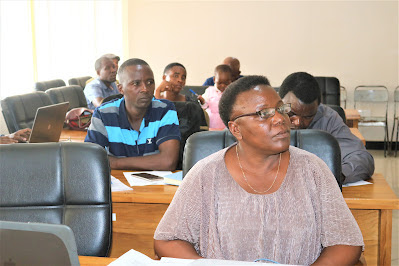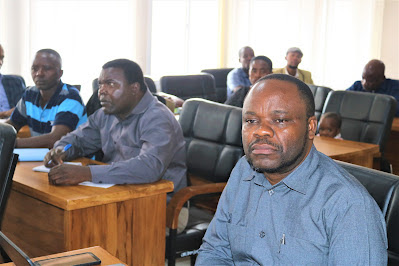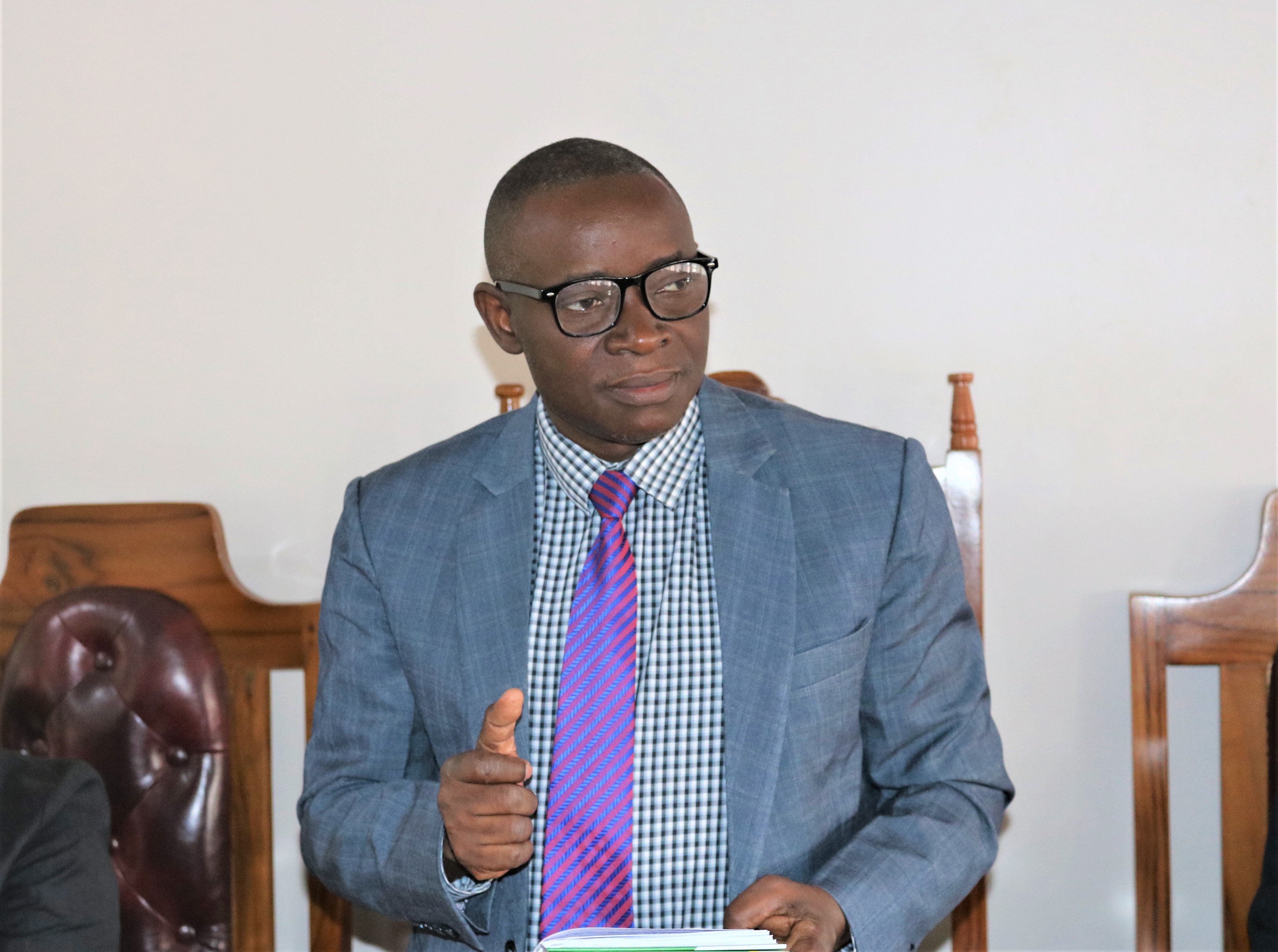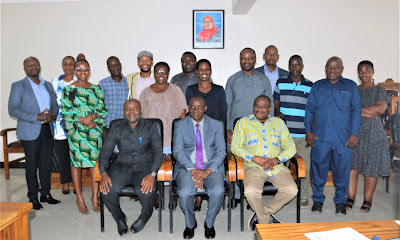Agricultural transformation in Tanzania needs more efforts in creating awareness among small-scale farmers to move from subsistence farming and embark on agribusiness. Government commitment in funds allocation and strengthening of ties among the Agricultural Sector Lead Ministries (ASLMs) is of paramount importance.

Presenting research project findings, on April 13, 2023 in Dodoma City, on the Synergy among ASLMs in the Transformation of Tanzania’s Agriculture (SATTA), the project Principal Investigator, Dr Suzana Nyanda, a Senior Research Fellow from Sokoine University of Agriculture (SUA), said that their research findings had shown a big difference in the implementation of the Agricultural Sector Development Programme Phase I (ASDP I) and Phase II (ASDP II). She maintained that ASDP I was successful in improving infrastructure to enhance crop, livestock, and fishery productivity whereas ASDP II focused on strengthening rural commercialization and value addition.
Dr Nyanda added that during ASDP I, the funding was through a basket fund that involved the Tanzanian Government and Development Partners. More than 31,813 kilometres of roads were rehabilitated, 365 primary and 46 secondary livestock auctions were initiated whereas 336 tanneries were raised.

Other achievements during the implementation of ASDP I included the construction of irrigation schemes, veterinary health centres, dip tanks, and oil extraction machines. In this phase, extension officers were directly involved at local government level. ASDP I also facilitated capacity building to extension officers and farmers on improved agricultural practices.
Regarding the implementation of ASDP II, the research findings have shown that the implementation was still on-going through internally generated funds with little support from Development Partners. In the year 2021/2022, more than 70 percent of the Agricultural Sector funds were allocated for strengthening rural commercialization and value addition while engaging the Private Sector. This Government’s effort of strengthening value chains is highly commendable.
However, Dr Nyanda hinted that interactions among ASLMs during ASDP II were not given enough space, the budget allocation was limited; hence expectations were unmet. In the year 2021/2022, only 77.4 percent of the approved funds were released. Contributing to that, the stakeholders who attended the workshop showed the importance of the Government’s continued commitment to allocating and providing funds in boosting the Agricultural Sector. They urged the Central Government to issue guidelines and circulars directing District Executive Directors (DEDs) to disburse the allocated percentage of the revenues accrued from crop, livestock and fish productivity to facilitate the implementation of ASDP II. Currently, these funds are disbursed minimally or are not disbursed at all, thus affecting the implementation of ASDP II and development of the Agricultural Sector at large.

These research findings were presented at the stakeholders’ workshop by SUA researchers, thanks to the SATTA project with funding from its internally generated funds under the SUA Research and Innovation Support (SUARIS). Other stakeholders involved included representatives from the Prime Minister's Office, Ministry of Finance and Planning, and Njombe and Manyoni District Councils.
The Coordination of the Agricultural Development Program (ASDP) in the Prime Minister’s Office has commended Sokoine University of Agriculture (SUA) for its boldness in using its internal revenue funds to conduct research in various areas of the country.
Closing a one-day workshop on April 13, 2023, in Dodoma, the representative of the Prime Minister's Office, Coordination of the Agricultural Development Program (ASDP) Dr. Salim Nandonde has said that SUA is a good example in this matter and urged other research institutes to follow that example.
Representative from the Office of Prime Minister, ASDP Coordination Dr. Salim Nandonde closing a one-day SATTA workshop
"For us, it's not about how much you get from Development Partners, but it is about how you use what you have to do what is possible. I should say, this is really a big thing, so we should congratulate SUA for using its internal funds to enable young researchers to do their research."
Talking about how the plan was implemented in two phases, namely ASDP I and ASDP II, he maintained that the Prime Minister's Office is not the implementer of this plan but only the coordinator and that the various tables (presented) showed how the foreign donation funds are decreasing year by year.
Initially, while opening the workshop that intended to share the SATTA research in ASDP results, the SUA Director of Postgraduate Studies, Research, Technology Transfer and Consultancy, Prof. Esron Karimuribo said; SUA along with its main responsibilities of teaching, research, and Consultancy, but as a public institution should act in providing answers to the problems facing the Tanzanian society.
Prof. Karimuribo added that to ensure SUA achieves its goals, they have invested in conducting research and building the capacity of researchers where they have 564 researchers and professionals who can do research work with absolute certainty. In addition, he said 54.6 percent of the researchers, which is equal to 308 have Doctoral Degrees and that is why SUA has continued to be the number one university in research in the country.

Director of Post Graduate Studies, Technology Transfer and Consultancy at SUA Prof. Esron Karimuribo speaking on one day closing workshop
He said that in 2021 SUA introduced the SUARIS Program which aims at building the capacity of its researchers through internal revenues so that they can conduct research and provide answers (to community problems), where in 2021, it allocated 500 million shillings, in 2022 and for this year ending in June 2023 was allocated one billion each. This shows that SUA is increasing the use of its internal revenue for research.
The Head of the Department of Policy, Planning, and Management in the College of Social Sciences and Humanities, Prof. David Mhando, thanked all the stakeholders who participated in the research led by Dr. Suzan Nyanda and Emmanuel Malisa because their participation brought results that can be used in the implementation of other projects.
Pictuer below are various stakeholders who participated in SATTA Project
Speaking about the study, the Head of the Division of Agriculture and Livestock from the Manyoni District, Mr. Fadhili Chimsalimu said that after the presentation of the SATTA research results, they have seen that there are some loopholes that lead to the failure of various projects including ASDP and therefore it is important to have collaborations and to understand well the various projects and plans to improve agriculture in the country.





